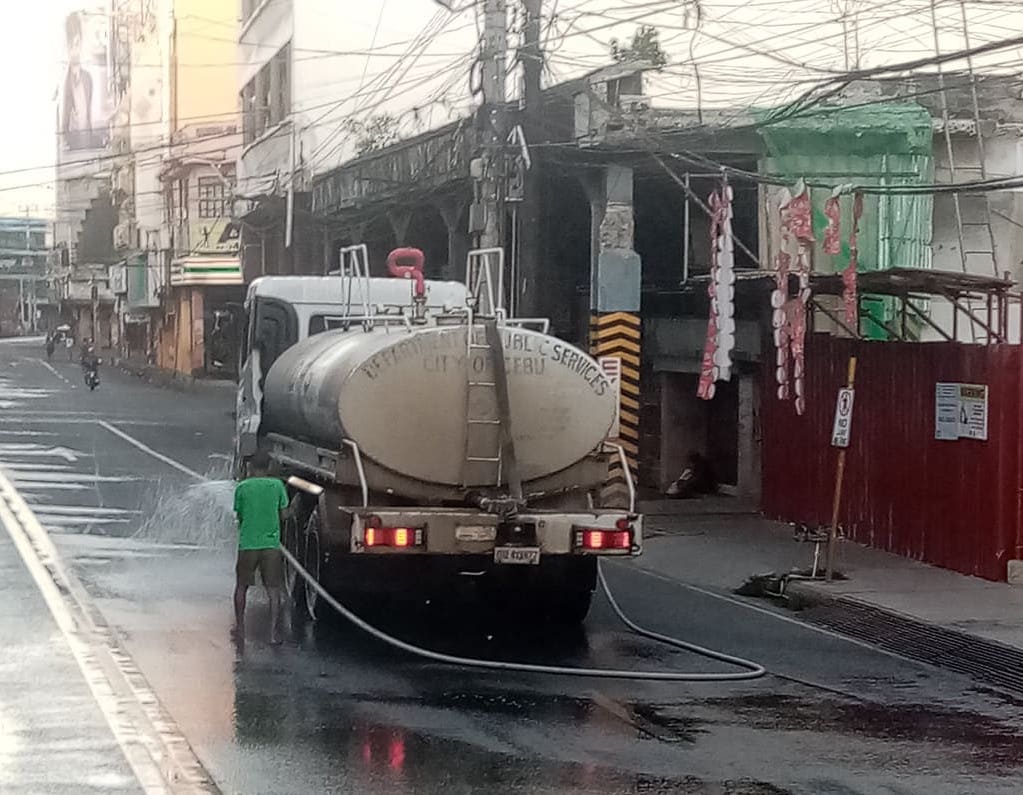Disinfection of Cebu City roads begins

A worker from the Department of Public Services of Cebu City disinfects Colon Street on Tuesday morning, March 31, 2020. | photo courtesy of DPS
CEBU CITY, Philippines—The Cebu City government took advantage of the lesser number of vehicles and people on the city’s major thoroughfares and began disinfecting these areas to bolster the fight against the spread of the coronavirus disease here.
Lawyer John Jigo Dacua, the head of the Department of Public Services (DPS) said that at least five major roads have already been disinfected in the city.
The Pasil market roads, the roads surrounding the City Hall, Osmeña Boulevard, Colon Street, and Jones Avenue have been disinfected.
Dacua said that they prioritized the usually most crowded roads because they have more chances of harboring the coronavirus.
“Nakabantay mo sa mga niagi, nagdisinfect ta sa Pasil. Ganinang kadlawn gibalikan ang Colon Street. Ang atong gisiguro ang mga crowded nga areas,” said Dacua.
(If you have noticed, we have disinfected Pasil. Last night, we returned to Colon Street. We prioritized the crowded areas.)
Help needed
Dacua said the city is also partnering with barangays with their own firetrucks to help in the disinfection of roads.
With only three firetrucks, the city needs as much help they can get from the barangays.
The DPS hopes to disinfect all major thoroughfares before the end of the Enhanced Community Quarantine.
The schedule for the disinfection is every night during the curfew hours between 8 pm to 5 am.
Dacua said that barangay initiatives for disinfection is also appreciated and highly welcome.
He also assured that those riding the free buses in the city that the buses undergo constant disinfection every new batch of passenger.
“Makabantay mo, ang mga buses nato naa gyoy mangdisinfect nga personnel before pasudlon ang pasahero,” he said.
(You will notice that in our buses, there are personnel to disinfect the seats before a fresh batch of passengers board.) /bmjo
Disclaimer: The comments uploaded on this site do not necessarily represent or reflect the views of management and owner of Cebudailynews. We reserve the right to exclude comments that we deem to be inconsistent with our editorial standards.

